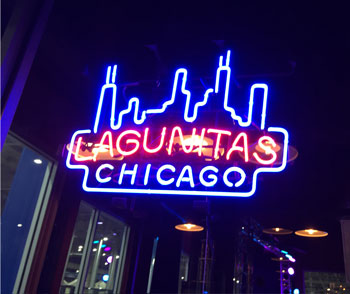Craft brewer Lagunitas goes Dutch with Heineken
And we thought the announcement of the deal between Heineken and the Californian craft brewer Lagunitas would be followed by a mass suicide. But lo, there was just outrage that one of the craft brewing industry’s best loved companies, Lagunitas, willingly fell into the arms of a Big Brewer.
The co-founder of Scottish anarcho brewer BrewDog, James Watt, was among the most prominent opponents. Upon hearing of the transaction on 8 September 2015, he told his followers via Twitter that his bars will no longer stock Lagunitas’ products.
The news certainly made big waves the world over. Founded by Tony Magee, 55, in 1993, Lagunitas was the sixth largest craft brewer in the U.S. by volume in 2014, selling an estimated one million hl beer this year.
It is best known for its brand Lagunitas IPA, which Heineken says is now the largest IPA brand in the country. The company has breweries in Petaluma, California, and Chicago, with a third brewery under construction near Los Angeles, which is expected to open in 2017.
Financial terms of the deal were not disclosed but, if we apply the going rate for craft brewers (USD 1,000 per hl), Lagunitas could be valued at about USD 1 billion, which puts the sum Heineken may have had to fork out at roundabout USD 500 million.
That’s a neat pile of dosh and a courageous move for Heineken because the transaction will lead to a 50:50 ownership. This means that in terms of decision-making no one has the upper hand. In principle, if the partners share the same outlook and values, such a split should not cause too many headaches, but if they don’t – well, they can always see each other in court to sort things out.
Several market observers agree that the 50:50 partnership was a concession by Heineken to make Mr Magee stay on board. Like other craft brewers, the Lagunitas business is personality-driven. Mr Magee is craft beer royalty and his fans adore him like a rock star. No one knows what happens to craft breweries with strong leaders once they exit the business for good. Perhaps by keeping Mr Magee and current management in charge, Heineken hopes to appease those hard-core craft beer consumers who would otherwise give the beer the finger?
While for Heineken the risks are certainly high, Mr Magee has a lot to gain from this tie-up. His company is growing rapidly. Revenues shot up 58 percent per year between 2012 and 2014, it was reported. Entering the Heineken distribution network in the U.S. will help expand his domestic reach. Also, now may be a good time to take his beers global, for which Heineken’s vast global network may be best suited.
That Lagunitas will disappear from the ranks of U.S. craft brewers following this transaction should not give the new partners any sleepless nights. By the rules of the Brewers Association, a beer can only keep its “craft” designation as long as “less than 25 per cent of the craft brewery is owned or controlled... by an alcoholic beverage industry member that is not itself a craft brewer,” meaning Lagunitas will technically cease to be a craft beer.
It will be interesting to watch how Lagunitas evolves: whether it will face a backlash from ardent disciples, ie a dip in sales, or if it will continue to see two-digit growth, both in the U.S. and abroad. Only time will tell.

